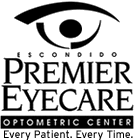February has been designated by Prevent Blindness America to raise awareness about age related macular degeneration (AMD) and low vision.
Are you aware that age related macular degeneration (AMD) is one of the primary causes of loss of vision in adults over the age of 65? AMD is a condition that affects the macula in the eye which is responsible for clear central vision.
AMD Signs
The first signs of AMD are often unclear eyesight and spots in the center of vision. Because the symptoms typically come on gradually and painlessly, symptoms are often not perceived until the disease has progressed. For this reason every individual over 65 years of age should make sure to have a routine eye examination regularly.
Risk Factors for Age Related Macular Degeneration
If you are of Caucasian decent, over the age of 65, who smokes, eats an unhealthy diet or has a family history of AMD, you are at increased risk of developing the disease. Anyone that is at increased risk should be certain to schedule an eye exam on a yearly basis. Consulting with your optometrist about proper nutrition including vitamins such as C, E, A, and zinc, which are all antioxidants and omega-3 fatty acids, is also a good way to protect yourself.
Wet vs. Dry AMD
Generally, AMD is usually categorized as either wet or dry. The dry version is found more frequently and may be a result of advanced age and thinning of the macular tissues or deposits of pigment in the macula. The wet form, also known as neovascular age related macular degeneration, is caused from the growth of new blood vessels beneath the retina which leak blood, destroying the cells and resulting in blind spots. Usually wet macular degeneration leads to more severe vision loss.
Is There Treatment for Macular Degeneration?
While there is no cure for macular degeneration, there are treatments that can slow or minimize loss of vision. The treatment prescribed by your optometrist depends on the type of macular degeneration and may involve laser surgery or medications to stop blood vessel growth or in some cases, dietary supplements. For any treatment to succeed, early detection and treatment is critical. An eye doctor will also be able to suggest devices to help you deal with any visual difficulty that has already occurred. Such loss of sight that cannot be improved by eyeglasses, contacts or surgery is called low vision. There are quite a few low vision aids available today that can make everyday activities easier.
Learn about the risks and symptoms of AMD before it's too late. Schedule an appointment with your optometrist to find out more about macular degeneration and low vision.


*Closed daily for lunch between 1pm to 2pm